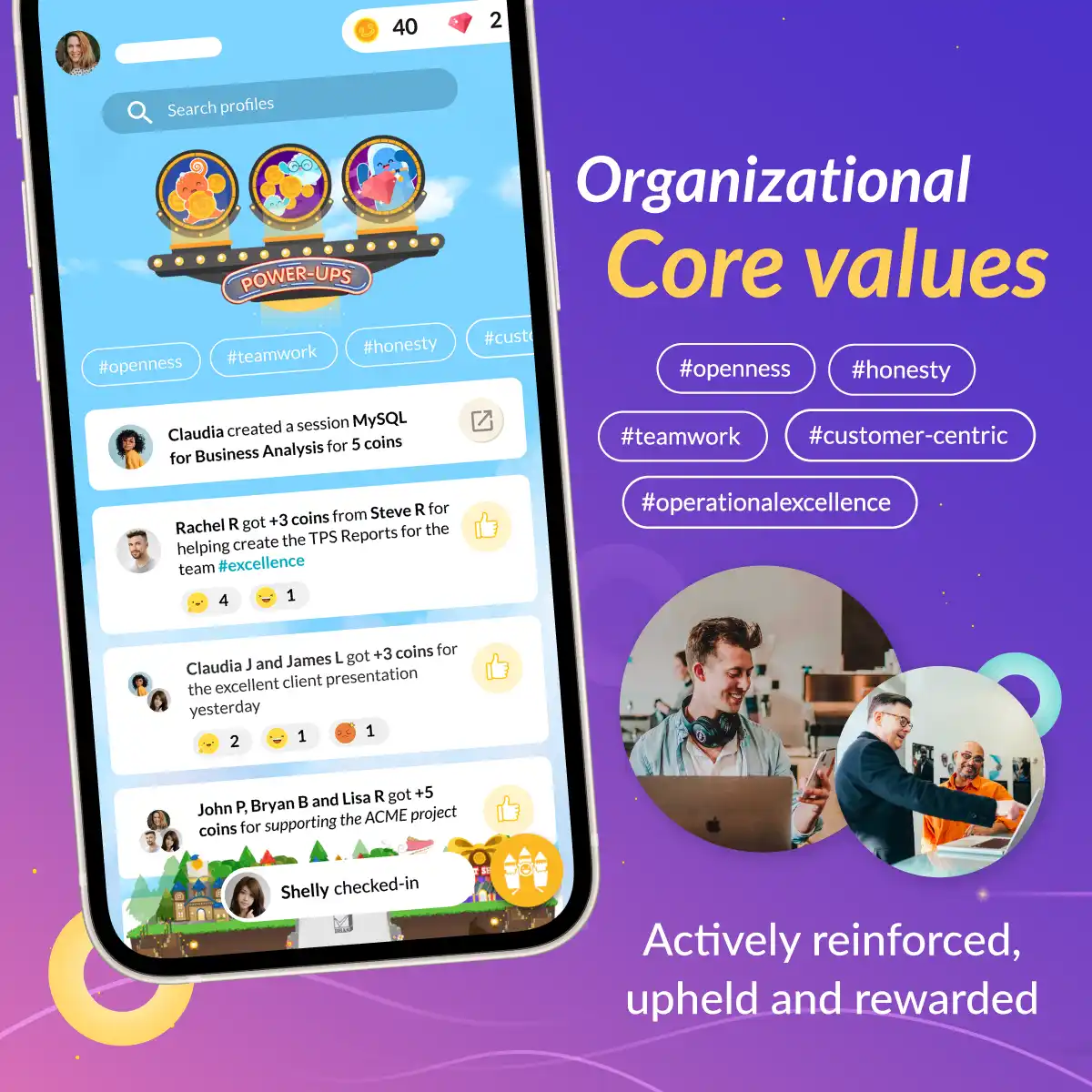The cornerstone of organizational success extends beyond profitability; it lies in cultivating an environment where employees feel valued and engaged in their work. One of the most effective ways to increase employee engagement is to establish core values that shape the organization's culture and behavior. This article highlights 10 examples of core values that have been shown to increase employee engagement and contribute to business success.
Examples of Core Values
1. Adaptability
The capacity to react promptly and efficiently to change is vital. Organizations that prioritize adaptability can stay ahead of evolving trends and capitalize on new opportunities, even in uncertain and disruptive times.
2. Innovation
Progress and growth hinge on innovation. Organizations that endorse and reward innovation stimulate employees to think creatively, leading to novel ideas, breakthroughs, and competitive advantages.
3. Customer-Centricity
Customers are the backbone of any organization. By emphasizing customer satisfaction and exceeding their expectations, organizations cultivate a culture of service excellence that results in increased loyalty and repeat business.
4. Continuous Improvement
Staying competitive in today's dynamic business landscape requires continuous improvement. Organizations committed to perpetually enhancing their processes, products, and services can stay ahead of the curve and adapt to shifting market conditions.
5. Agility
Agility refers to the ability to move quickly and efficiently, adapting to new challenges, and responding effectively to rapidly changing circumstances in the business environment.
6. Empowerment
Unlocking employees' full potential relies on empowerment. Employees who are entrusted with decision-making, risk-taking, and independent thinking are more likely to feel engaged and motivated in their work.
7. Courage
Courage encourages employees to face challenges head-on, make difficult decisions, and act on their convictions, even in the face of potential criticism or failure.
8. Work-Life Balance
A healthy work-life balance is vital for employee well-being and productivity. Organizations that support employees in achieving this balance can decrease burnout, turnover, and absenteeism while enhancing engagement and job satisfaction.
9. Transparency
Openly and honestly sharing information is the essence of transparency. Organizations that prioritize transparency can establish trust and credibility with employees, customers, and stakeholders, promoting a culture of openness and accountability.
10. Learning and Development
Acquiring new knowledge and skills is essential for both personal and organizational growth. By valuing learning and development, organizations can enable employees to thrive and stay abreast of emerging trends, ensuring a competitive edge.
How Core Values Drive Employee Behaviors
Situation A - Courage and Empowerment
Imagine a situation where a team is faced with a high-risk, high-reward project that requires venturing into uncharted territory. Employees who value courage and empowerment can proactively take on the challenge, making tough decisions and taking calculated risks to push the project forward.
For instance, they might propose unconventional solutions, advocate for additional resources, or collaborate with external partners to tap into new expertise. This behavior demonstrates the employees' commitment to innovation and growth, and their ability to act decisively even in uncertain circumstances.
Situation B - Customer-Centricity and Agility
Employees who embrace customer-centricity and agility can respond quickly by prioritizing the customers' needs, gathering additional feedback, and working collaboratively to refine the product. For example, they might organize focus groups, conduct usability tests, or liaise with the development team to implement necessary changes. This behavior showcases the organization's dedication to customer satisfaction and its ability to adapt swiftly to meet customer expectations.
Situation C - Transparency and Continuous Improvement
Suppose a company has been experiencing a decrease in sales and wants to understand the root cause of the issue. Employees who value transparency and continuous improvement can proactively collect data and information to identify the problem areas.
For example, they might conduct customer surveys, analyze sales data, and gather feedback from frontline staff. This behavior showcases the organization's commitment to transparency by involving all employees in the problem-solving process and continuously improving processes to address customer needs. It also demonstrates the employees' dedication to excellence by seeking out opportunities to learn and develop new skills to enhance their performance.
Conclusion
Core values are a crucial component of a successful organizational culture that fosters employee engagement, drives innovation, and creates a sense of purpose and meaning. By prioritizing core values, organizations can create a workplace that attracts and retains top talent, achieves outstanding results, and effectively tackles emerging challenges and opportunities.










